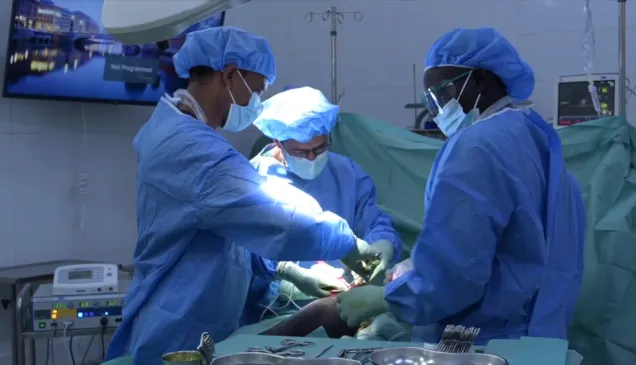“When the water drips from the bucket on to my face, it feels a little bit like rain," says Panda Mabor.
Along with her cousin, she collects water for her family.
South Sudan: Using solar power to bring water to 15,000 people
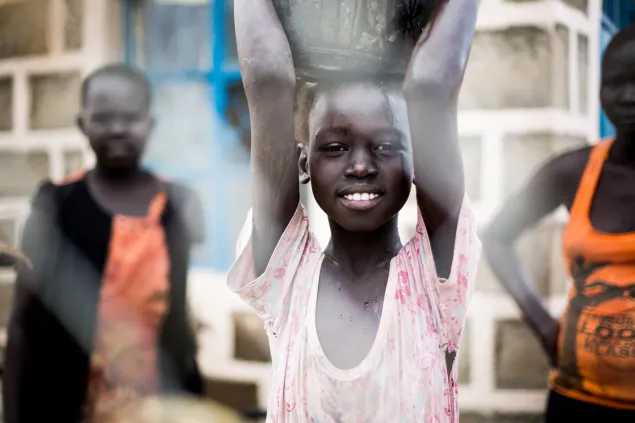
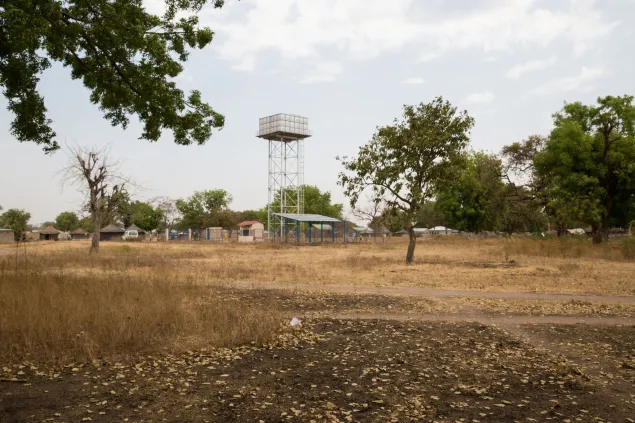
The ICRC has renovated the Akuach water yard, designed to provide water to 15,000 people. The water yard consists of a deep borehole, a water tank and a generator that now functions on solar panels.
It was constructed by GIZ, a German development agency, in 2012. It stopped functioning in 2014, reportedly due to the fact that rising fuel prices meant that the population was not able to pay for the fuel required to run the generator.
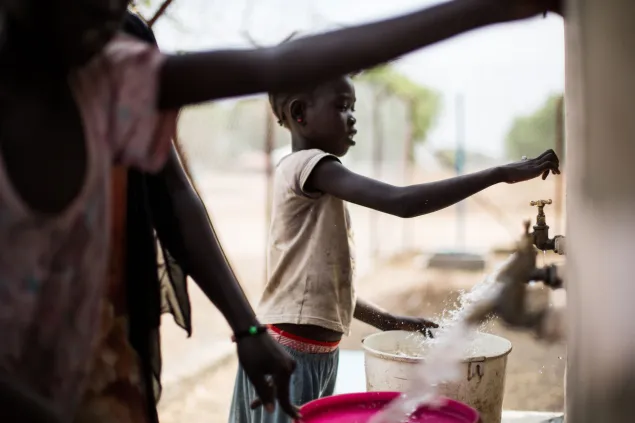
The water yard supplies water to 15 water kiosks. This way the local population can collect water close to where they live.
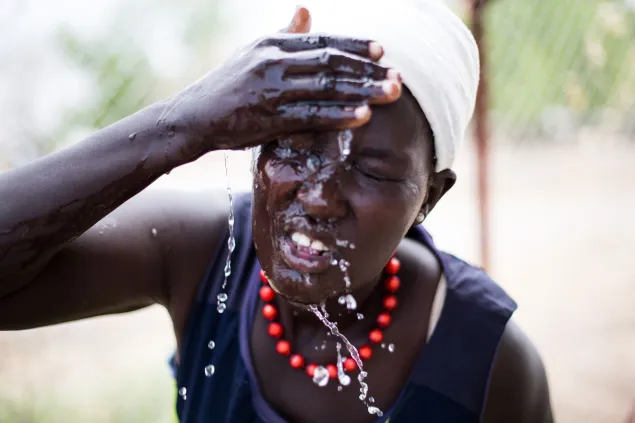
“When it is very hot outside, I use cold water to cool down. This is not possible if the water is hot or very far away. This water means a good life for us," Yar says.
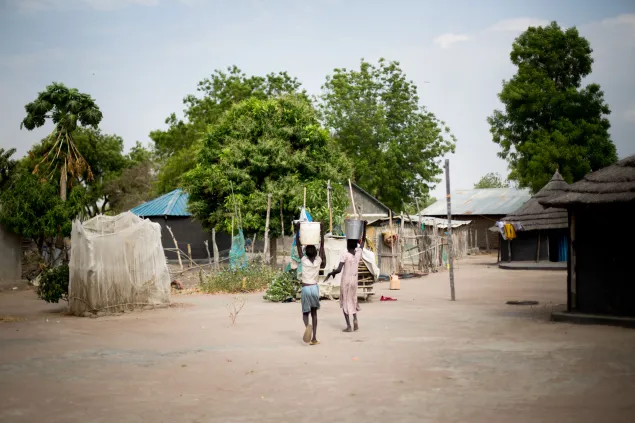
“The water we have been getting from the borehole has not been clean. I know this, because when I left water in a pot overnight, I could see the collected dirt at the bottom of the pot the next morning. The water we get from the water kiosk is not like this. I can also see that my children are better, because we no longer get sick from the water," Rebecca says.
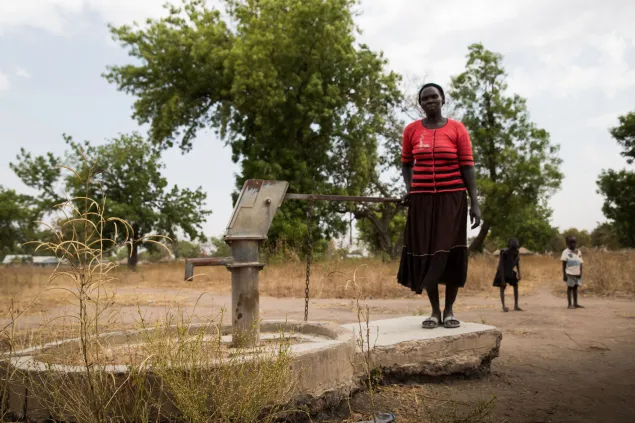
Without the water yard, the community was solely dependant on hand pumps that provided water from shallow boreholes. Some of them were located far away from the populated areas.
“It was more difficult before because we could not wash clothes for the children. Now, with this new water, we can wash our things more easily," Rebecca says.
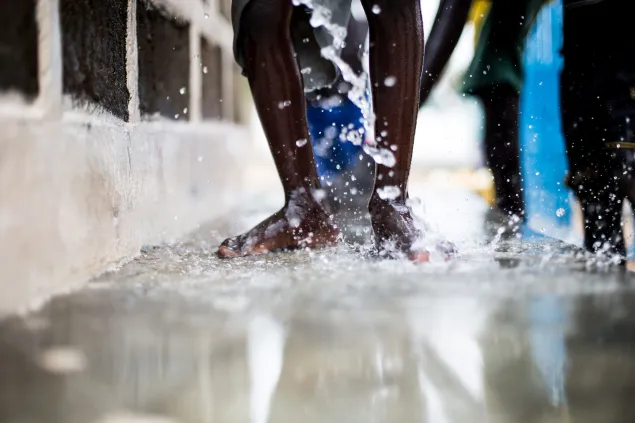
The increase in population puts pressure on existing infrastructure, especially water pumps, the number of which has not been increased to match the population growth in Rumbek town.
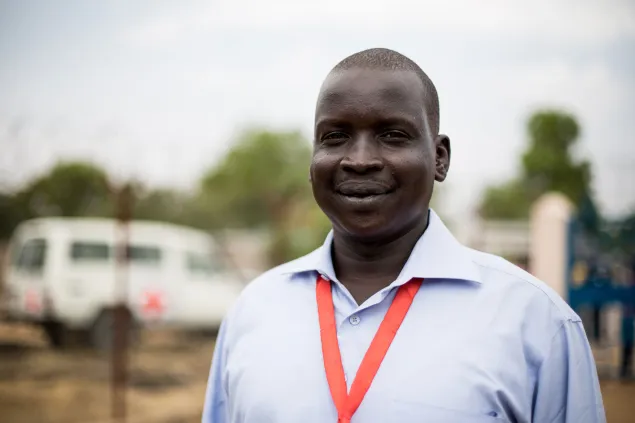
“We have rehabilitated the broken water kiosks and added a solar panel system so the running cost of the system is reduced. Without this, some have to walk long distances to get water and we have seen long queues of people waiting to fetch water in this area. With this water yard, the quality of the water is also better," Akhol Henry Kamcill, an ICRC water engineer in Rumbek, says.
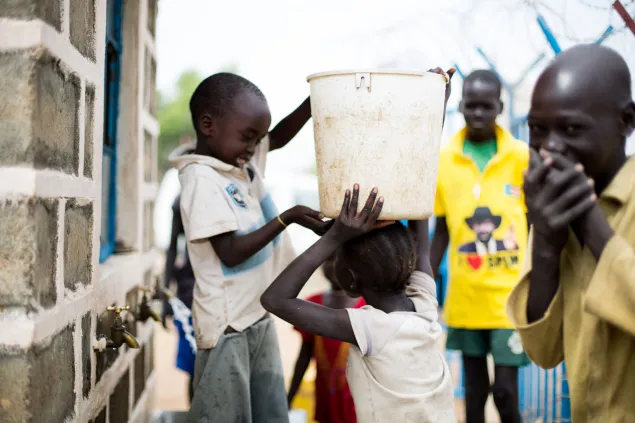
“Sometimes I spill water on my clothes and it makes me feel happy. It cools down my body," Adut Makur, says.
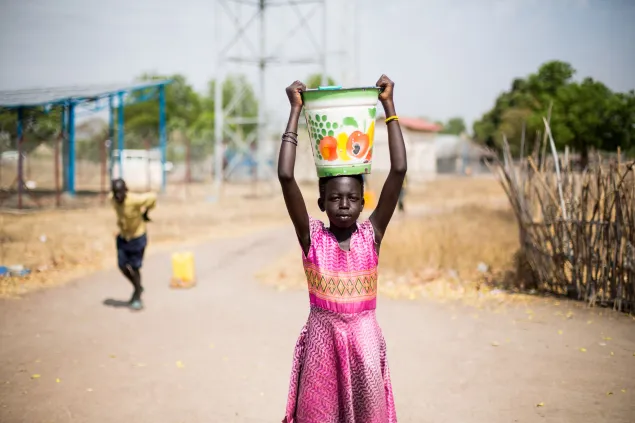
“Clean water gives a good life. I like it because we don’t get sick," Theresa says.
She attends 4th grade in school.
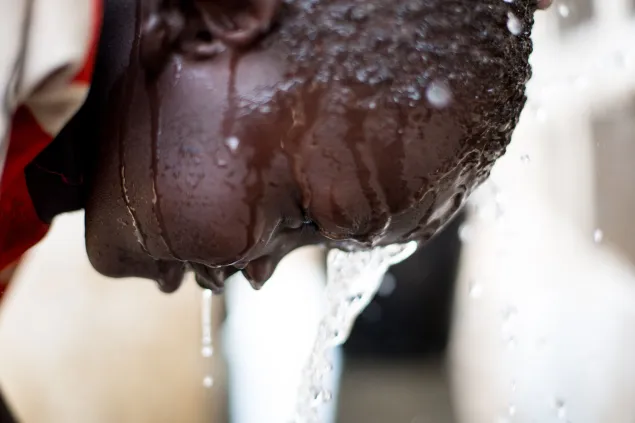
“The doctor told us that the water we used to drink could give us typhoid fever. That disease feels like the middle part of your head jumps up and down. The children suffer from this, too. In the morning, that water looks red," Deborah explains about the water from the shallow boreholes that the community used to drink.
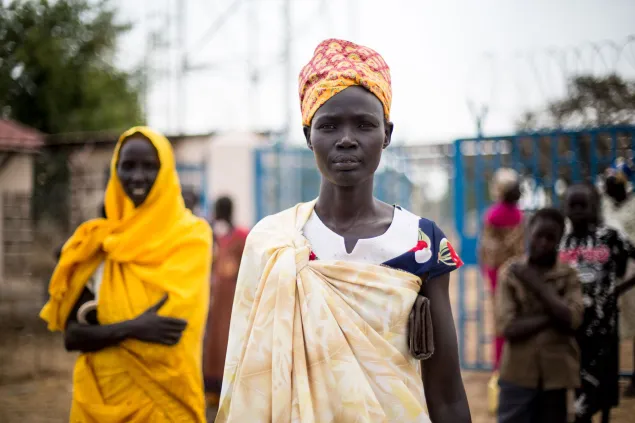
“We feel like this is a big freedom because the water is so close. It gives us more time to take care of our children," Deborah says.
The town of Rumbek is facing an unprecedented growth in population with people from the surrounding rural areas pouring in. Cattle raids and inter-clan fighting cause large-scale destruction of property and endanger livelihoods in rural areas. This forces the people to seek the relative safety of the nearby towns.
The increase in Rumbek's population puts pressure on existing infrastructure, especially water pumps. For this reason, the ICRC has renovated a water yard designed to provide water to 15,000 people.



